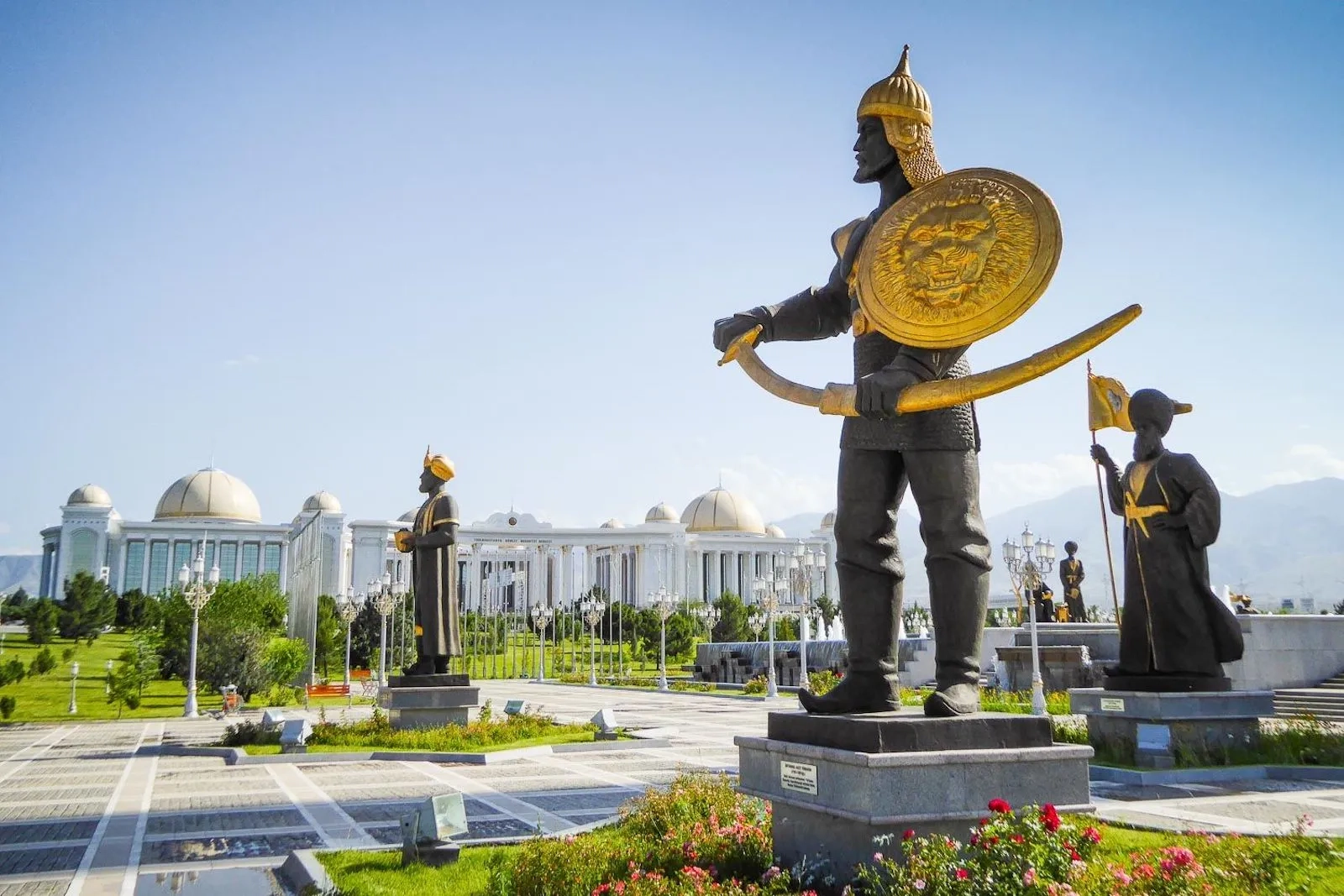1. Ashgabat: Is known for its modern architecture, expansive white marble buildings, and well-maintained parks. Visitors can explore monuments, museums, and witness the city's impressive skyline.
2. Darvaza Gas Crater (Door to Hell): Located in the Karakum Desert, the Darvaza Gas Crater is a natural phenomenon often referred to as the "Door to Hell." It's a massive crater with a natural gas flame burning continuously, creating a surreal and mesmerizing spectacle.
3. Ancient City of Merv: Merv, was a major center along the Silk Road. Visitors can explore the archaeological ruins of this ancient city, including well-preserved structures like the Sultan Sanjar Mausoleum.
4. Kunya-Urgench: Features the remnants of an ancient city with historical landmarks such as the Turabek Khanum Mausoleum and the Kutlug Timur Minaret.
5. Nisa Archaeological Site: As an ancient Parthian city. Visitors can explore the archaeological remains, including fortresses and royal mausoleums.
The best time to visit Turkmenistan largely depends on personal preferences and the type of experience you are seeking:
• Spring (April to June): Spring is considered one of the best times to visit Turkmenistan. The weather is generally mild and pleasant during these months. The landscapes are green, and temperatures are comfortable, making it suitable for exploring historical sites and natural attractions.
• Fall (September to October): Similar to spring, the fall months offer mild temperatures and pleasant weather. It's an ideal time for cultural tours, outdoor activities, and visiting archaeological sites without extreme heat.
• Avoiding Summer (July to August): The summer months in Turkmenistan can be extremely hot. Daytime temperatures often soar well above 40°C (104°F).
• Winter (November to March): Winter in Turkmenistan can be cold, especially in the northern regions. Winter is less popular for tourism due to the colder weather.
- Road Transport: Roads connect major cities and towns in Turkmenistan. The road network is improving, but conditions may vary. Taxis, buses, and shared taxis (known as marshrutkas) are common for local travel. Private cars and rental services are also available.
- Rail Transport: Turkmenistan has a railway network connecting major cities. Train travel is an option for longer distances, offering both comfort and affordability.
- Air Transport: Turkmenistan has several domestic airports. Turkmenistan Airlines operates domestic and international flights.
Average Prices:
• Taxi (short city ride): $2 - $5
• Bus/Minibus (within a city): $0.20 - $0.50
• Train (intercity): $5 - $20 or more.
• Domestic Flight (Ashgabat to regional city): $50 - $150 or more.
Import of goods without payment of customs duties and taxes:
Goods, the total weight of which does not exceed 60 kg, jewelry are exempt from customs duties. For each 1 kg exceeding the allowed 60 kg, a customs duty of 10 USD is charged. For each 1 g of jewelry exceeding the permissible 1 kg, a customs duty of 0.20 USD is charged
An individual may import for personal use without paying excise duty:
- Alcoholic beverages in the amount of 1 liter
- Tobacco products in the amount of 2 packs
A passenger may bring medicines bought on prescription, intended for self-treatment.
Goods transported across the customs border of Turkmenistan by individuals by decisions of the relevant state bodies:
- Firearms
- Radio-electronic means and high-frequency devices
- Archival materials
- Works of art (graphic arts, paintings), antiquities, archeology and other items of artistic, historical, scientific and cultural value
- Antique carpets and handmade carpets
- Antique icons, religious objects and books on religion
Goods prohibited for import and export:
- Materials containing information that could harm the political and economic interests of Turkmenistan, its State security or the protection of public health and morals
- Pornographic materials
- Armaments, ammunition and military equipment
- Explosives
- Nuclear materials
- narcotic substances
• 112 - Emergency operational service
• 101 - Fire Department
• 102 - Police
• 103 - Ambulance
• 104 - Emergency gas service






